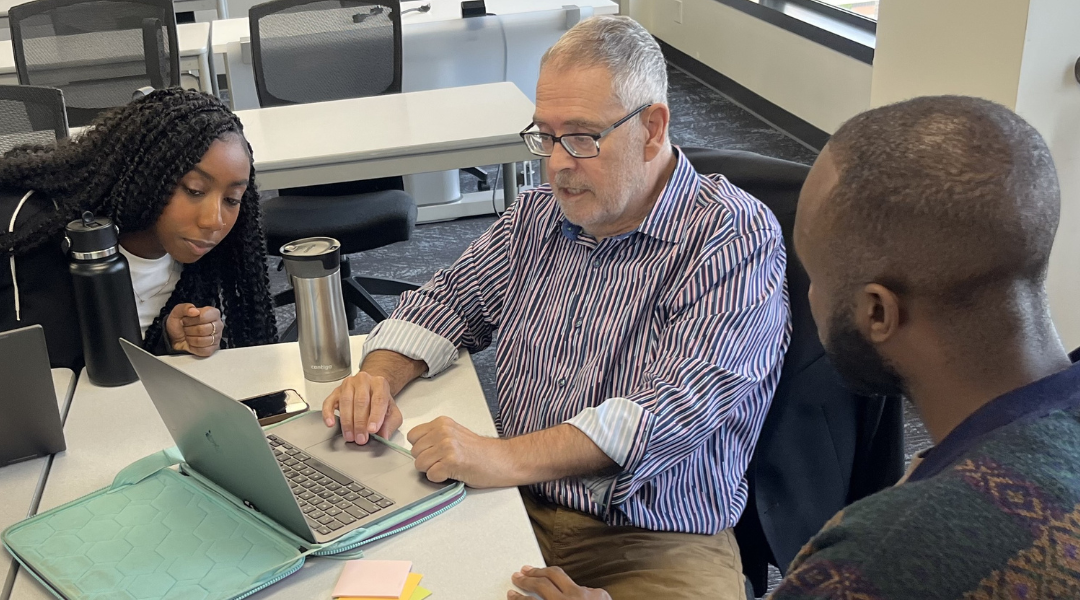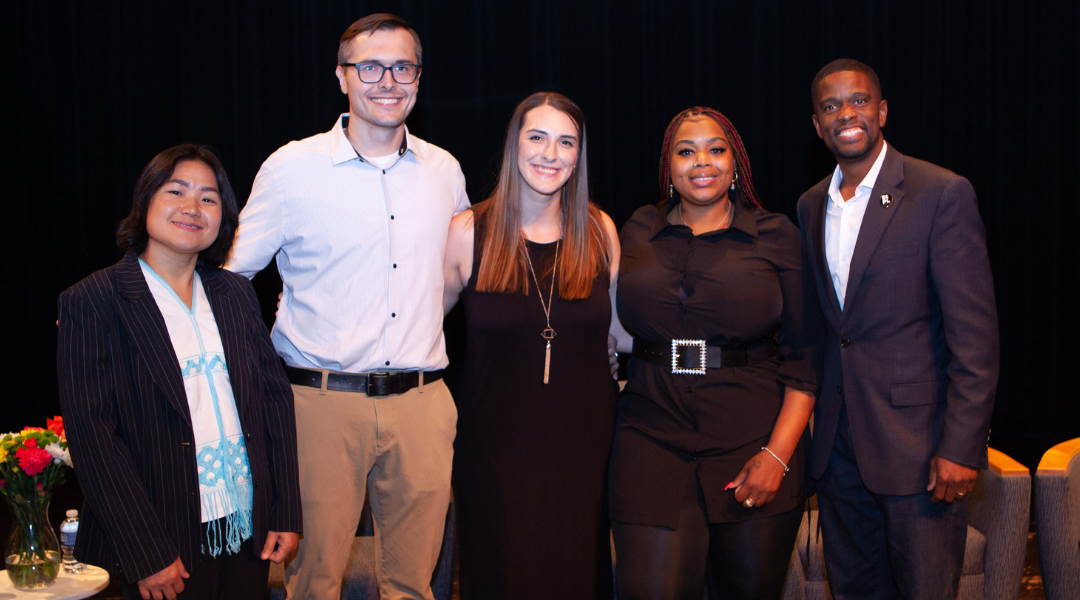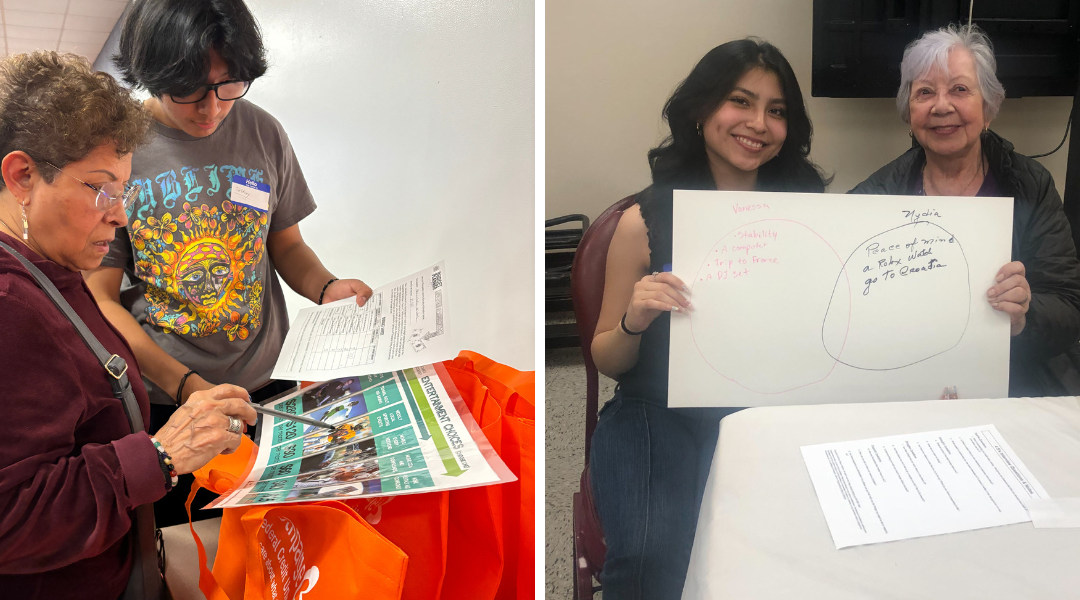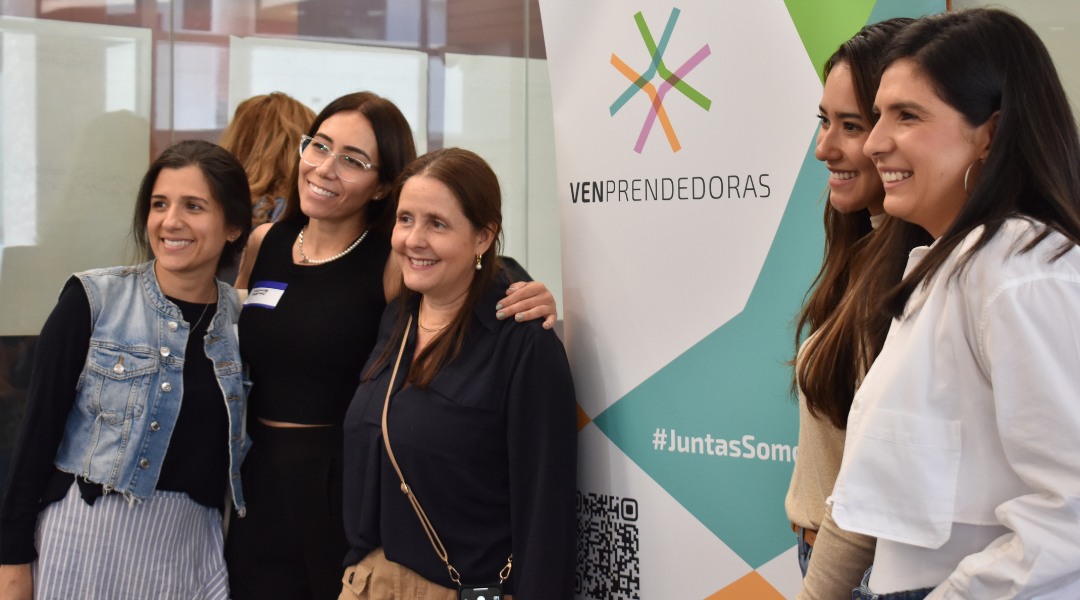
As colleagues from different generations (x and millennial), Marci Alboher and Duncan Magidson have been leading talks and workshops sharing their insights about working across generations. As they plan, they usually text furiously, sharing ideas and reflections. Here’s a peek into what those text convos look like. For this edition, Marci and Duncan dive into feelings about social media. And dogs. After all, what better clickbait?
Marci Alboher (CoGenerate VP of Narrative Change): Your dog, Dr. Gregory Porridge, recently announced her (their?) presence on LinkedIn and it made me wonder about how people of different ages or maybe life/career stages look at social media.
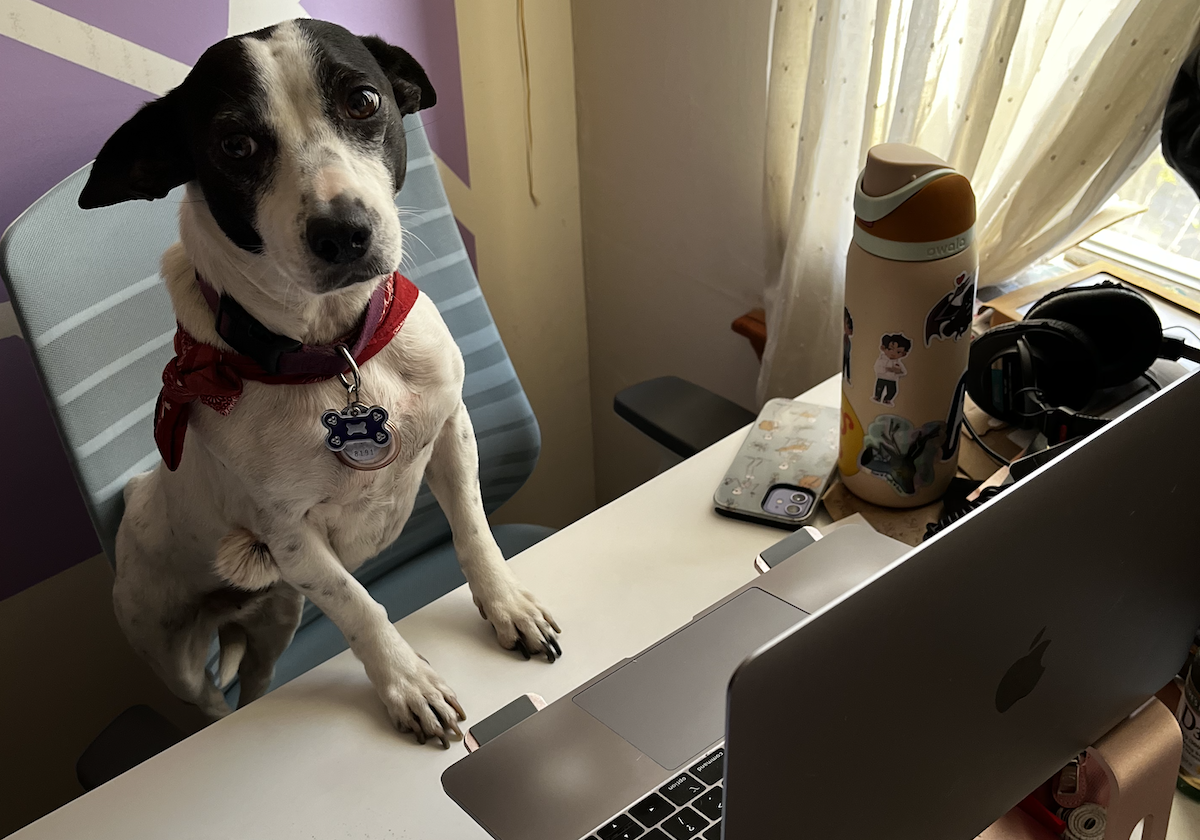
Dr. Porridge contemplating her next big move.
I’d never seen that kind of subversiveness on LinkedIn before — my sense is that LinkedIn is not so friendly to irony and creativity. In fact, most of the true creatives I know stick to Insta and leave LinkedIn to those who live inside or adjacent to organizations.
So I couldn’t help wondering — are you and Elle (Dr. Porridge’s humans) resisting the urge to play grown-up and network in the virtual conference space OR does this have nothing to do with age and is just the way you bring your sassy sense of humor to everything you do? It’s why I like hanging out with you two even outside of work. You remind me to lighten up!
Duncan Magidson (CoGenerate Digital Communications Specialist): The funny thing is that the decision to make that LinkedIn account was so spur-of-the moment, it feels a little silly to dive into what makes it “subversive.” But if I had to diagnose it, I would say the account is a mocking response to two (kind of opposite) phenomena on social media: the overly cutesy dog Instagram account and the hyper career-focused entrepreneurial “hack your way to success” LinkedIn profile. At the risk of overgeneralizing, I think my generation — I’m a millennial — is often behind the worst of both of those!
I see a ton of skepticism around LinkedIn among my cohort — and I wonder if that may also be specific to millennials. It’s been interesting in our recent work with young leaders to see a lot of the youngest people engaging most heavily on LinkedIn.
I think my generation may have been the most affected by the mass migration off of Facebook. We were some of the very early adopters (I joined when I was 13), but I saw probably half of my friends leave completely as the privacy scandals/Cambridge Analytica nonsense started to pile up — and virtually none of my friends still post there. I was never a part of the Tumblr crowd, but that was another millennial-heavy online space that’s been almost entirely abandoned.
All of that to say, I wonder if people my age have a particular skepticism of big social media sites — and a comfort with leaving them. Elle actually deleted her LinkedIn a few years back, making the Dr. Porridge account a sort of triumphant return 😜
Marci: I am so attracted to the idea of a ‘mass migration’ off of social media sites. I see that with my own peers on the platform formerly known as Twitter where a level of toxicity has made participation there fraught. But it does seem like Insta is holding onto a lot of us who like some place to share a visual record of our life (with some adding in the professional, or a dose of activism). There is some consensus on LinkedIn as a place of civil discourse related to our working lives — which is why I found Dr. Porridge’s presence so refreshing.
A lurking issue for me is that I lost my appetite for new social media platforms just as TikTok showed up. Which also coincides with our work to engage more with younger leaders who, of course, are using TikTok to connect with their peers and get their ideas into the world. So I feel torn. I know how harmful all of these platforms are to our attention and mental health. And yet I also know that if I want to connect with more young people I have to visit their spaces, not just invite them into mine.
I also believe in the idea of making sure that there’s positive content in the online places where people congregate. So I’m in favor of the decision we made as an organization to build up a presence on TikTok. But as a person with a tendency to lose hours scrolling, I find myself just craving invites to in-person activities, something I always prioritize over spending more time online. You know I always say yes to the event or the party!
Duncan: Speaking as someone whose job description includes social media, I also really struggle with it.
You mentioned the general migration off of Twitter (or “X”🙄), and that’s one that’s touched us as an organization. Late last year, we made a decision to stop posting there entirely. Personally, I’m still hopelessly wrapped up on the site — it’s the best place I know to keep up with the news and especially live events, but it’s also a very obviously degraded experience.
It’s definitely true that younger people are spending a lot of time online, and especially on TikTok. We’ve been part of lots of conversations about the major downsides on mental health – but I’m also keenly aware that “online” isn’t just a fad. It’s hard for me to see a future that’s less digital than the world we’re living in now, so I think it’s really important that we engage with the online world instead of just throwing our hands up.
I also think there’s a classic generational component at play that might make it tempting to give up on these newer platforms and stick to what came before. I’m definitely not immune to this as someone a little outside the “TikTok Generation.”
Marci: So where does that leave us?
Duncan: I hope we can be doing three things when we’re working online. #1 is having conversations about making the future of social media a lot less harmful. #2 is to try to be a part of the world we want to make by sharing more thoughtful, positive content — content that might even encourage people to find those in-person, cross-generational connections.
And #3, of course, is that we’ve all got to follow Dr. Porridge on LinkedIn. 🤪
Read our previous installments of Overheard on Text: Communicating to Build Trust; Imposter Syndrome
